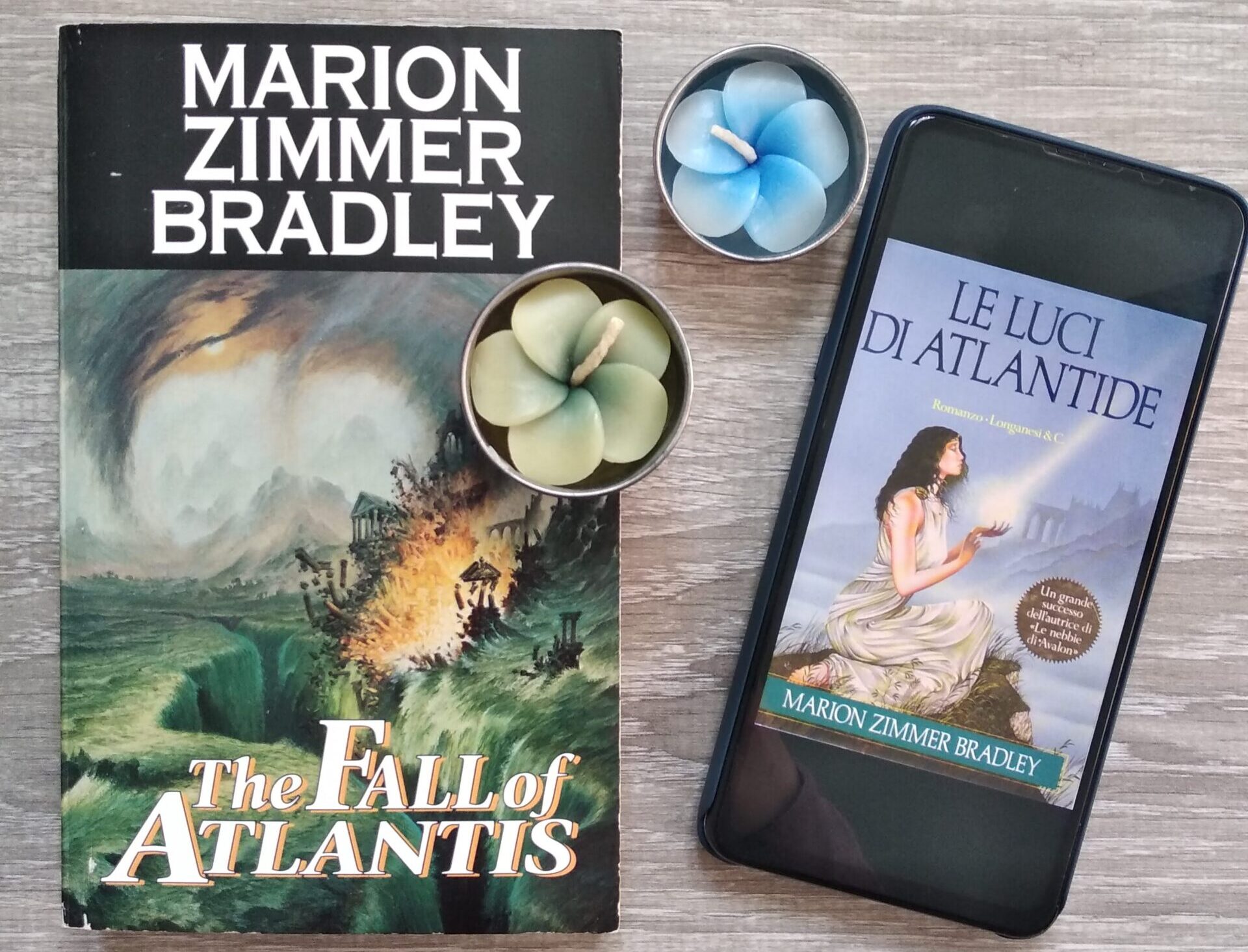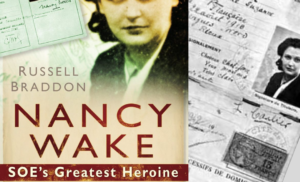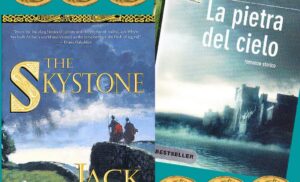
The Fall of Atlantis * Le Luci di Atlantide
"Long and long ago beyond the short memory of mankind, the Light had triumphed, and reigned now supreme in the Sun. But in the everlasting cycles of time – so even the Priests of Light conceded – the Reign of the Sun must end, and the Light should emerge back into Dyaus, the Unrevealed God, the Sleeper… and he would burst his chains and rule in a vast, chaotic Night."
The Fall of Atlantis is a novel by Marion Zimmer Bradley – author of the masterful The Mists of Avalon and many other novels – firstly published in two separate volumes (Web of Light and Web of Darkness), about the greatest battle of all times, that of Good and Evil.
The book begins with the arrival of an Atlantean prince of Light, Micon, who’s been tortured to extort the secrets of a great power, and who makes beautiful priestess Domaris fall in love. On the contrary Deoris, Domaris’s younger sister, decides to pursue a different path and gets involved with an ambiguous character.
It’s impossible not to compare The Fall of Atlantis and The Mists of Avalon. Whilst in both novels Bradley excels in storytelling and setting, here the story, characters and their relationships lack the depth we find in the book about the Arthurian legend.
Even the more spiritual sections are sparse, less felt and intuitive compared to The Mists of Avalon (or her other books of the Avalonian series), albeit we can already glimpse their cocoon.
Finally, this book’s greatest lack is the misleading title (chosen by the author or the publisher?), because despite the presence of a few Atlantean characters and the mention of the continent when it comes to some ritual, it doesn’t tell the story readers would expect by reading the title – that is the story of how Atlantis came to fall – but a more general battle between the forces of Light and Darkness.
Despite these weaknesses, Bradley’s able like few other authors to evoke long gone places and times and make them feel real, present. Furthermore, considering our current world situation, novels such as these are important as they push us to question our principles, values, and life choices, as well as to learn to discern the truth beyond appearances.
*******************************
"Molto, molto tempo prima, in un tempo di cui la breve memoria del genere umano non conservava tracce, la Luce aveva trionfato, e ora regnava suprema nel Sole. Ma nel corso degli infiniti cicli temporali – e questo lo ammettevano perfino i Sacerdoti della Luce – il regno del Sole era destinato a finire; Dyaus, il Dio Occulto, il Dormiente, avrebbe riassorbito la Luce... e, in una smisurata Notte del Caos, avrebbe spezzato le sue catene e instaurato il suo dominio."
Le luci di Atlantide è un romanzo di Marion Zimmer Bradley (autrice del magistrale Le nebbie di Avalon e di molti altri romanzi), dapprima pubblicato in due volumi separati (Web of Light e Web of Darkness), che racconta la più grande battaglia di tutti i tempi, quella tra il Bene e il Male.
Il libro comincia con l’arrivo di un principe della Luce atlantideo, Micon, che è stato torturato per estorcergli i segreti di un grande potere, e di cui Domaris, una bellissima sacerdotessa, si innamora. La sorella minore della giovane donna, Deoris, sceglie invece di percorrere una via diversa da quella della sorella e di legarsi a un personaggio ambiguo.
È impossibile non paragonare Le luci di Atlantide a Le Nebbie di Avalon. Mentre, in entrambi, la Bradley eccelle nella narrazione e nell’ambientazione, qui manca nella storia, nei personaggi e nelle loro relazioni quella profondità che troviamo nel libro sulla leggenda arturiana.
Anche le parti dedicate alla spiritualità sono più scarne, meno sentite e intuitive rispetto a Le Nebbie di Avalon (o agli altri libri della serie avaloniana), sebbene si possa già intravederne il bozzolo.
Infine, la mancanza più grande di questo libro è il titolo fuorviante (scelto dall’autrice o dall’editore?), in quanto, sebbene vi siano alcuni personaggi provenienti da Atlantide e il continente venga menzionato relativamente ad alcuni rituali, non racconta affatto quello che un lettore si aspetterebbe dal titolo, ovvero la storia della caduta di Atlantide, ma una più generica lotta tra le forze della Luce e dell’Oscurità.
Nonostante queste debolezze, la Bradley è capace come pochi altri scrittori di evocare luoghi e tempi lontani e di farli sentire reali, presenti. Inoltre, visto il periodo che tutto il mondo sta attualmente vivendo, romanzi come questo sono preziosi in quanto spingono a interrogarsi sui propri principi, valori e scelte di vita, nonché a imparare a discernere la verità al di là delle apparenze.




